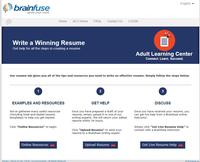What’s on your resume is just as important as what’s not on it. Last month we learned how to revamp a tired resume. Now it’s time to determine what should be left off!
Here are the top ten things you should never include on your resume:
10. Hobbies and interests
Don’t include items that are irrelevant the job description. Try including a skills section that includes desirable workplace skills.
9. Space fillers like “References Available Upon Request”
Including this line takes up precious space on your resume. Of course you will provide references upon request, no need to say it!
8. Long paragraphs
Employers spend about six seconds looking at your resume. Your key qualifications will be missed if your resume is too dense. Try using bullet points.
7. General descriptions of previous jobs
Employers don’t want to read your past job descriptions. Try including the skills and assets you used to get results and demonstrate your value.
6. Misspellings or grammatical errors
Your resume is a writing sample—be sure you proofread it. It also helps to have someone else review your resume for errors. The Workplace offers resume review sessions each month from 10:00 to noon. Be sure to visit the Workplace events calendar for upcoming dates! If you can't make it in person, you can upload your resume or online chat with a professional using Brainfuse Adult Learning Center's Resume Lab, accessible via the Free Library's databases.
Bonus: The format of your resume is just as important as its content. Keep it consistent.
5. Phrases like “Responsibilities/Duties included…”
Your resume should be about what you accomplished, not what you were supposed to do. Check out some tips on including accomplishments.
4. Personal information beyond your contact information
Don’t include any personal information beyond your address, email, and phone number.
3. Your GPA
If you’re a new graduate and your GPA is over a 3.5, you could include it. If you have been out of school for over three years and your GPA was lower than 3.8, leave it off your resume. Grades aren’t as relevant when you’re not in school.
2. Unrelated work experience
Don’t list every job you’ve ever had on your resume. Generally, you want to include relevant positions within the last 10 years (unless an earlier job strongly demonstrates specific qualifications). Don’t include positions that are unrelated to the job for which you are applying unless it leaves large gaps on your resume. If you have limited job experience or are changing careers, you can include unrelated positions as long as you demonstrate how they prepared you for a job in your new field. You might also consider writing a skills-based resume instead of a chronological resume.
1. An objective
If you applied for the position, then it’s obvious that your objective is to get hired. Objectives are outdated—try writing a summary instead. Summaries may include a few short lines that highlight what you most want to portray to the hiring manager about your experience and qualifications. It’s your place to pitch yourself. Your summary should be geared to each position for which you are applying. More information and samples summaries can be found online.
Visit freelibrary.org/workplace for more information on resumes as well as additional resources, upcoming events, and to request an appointment with a librarian.
Have a question for Free Library staff? Please submit it to our Ask a Librarian page and receive a response within two business days.



